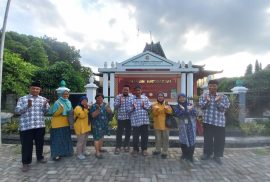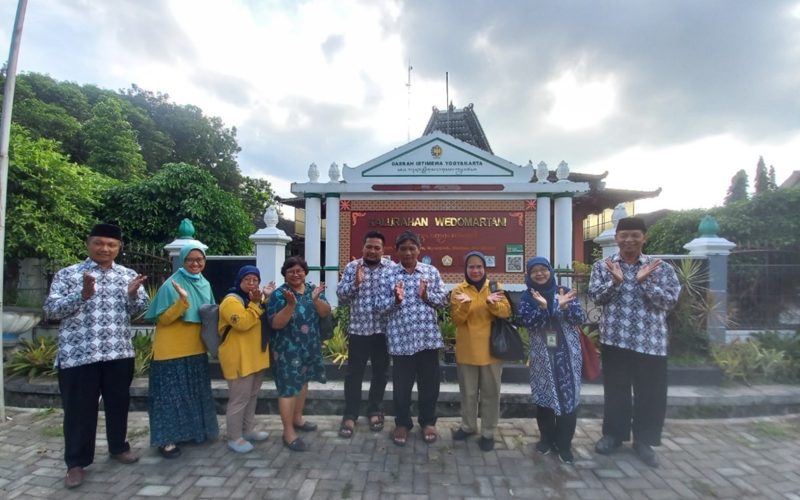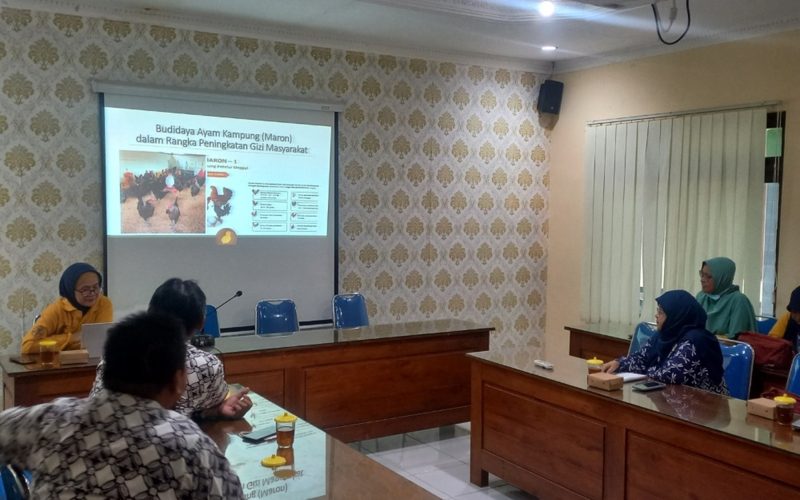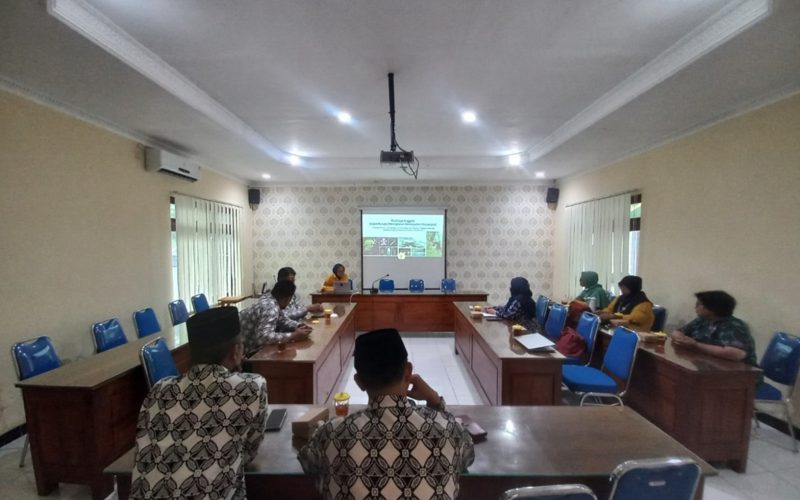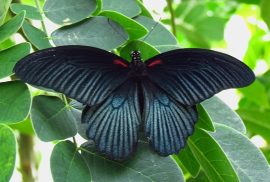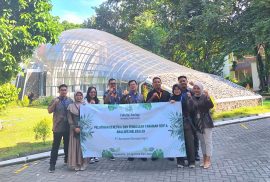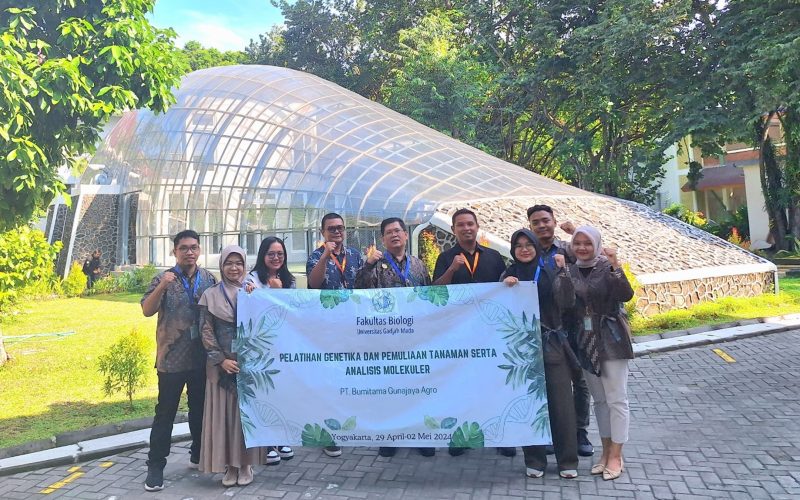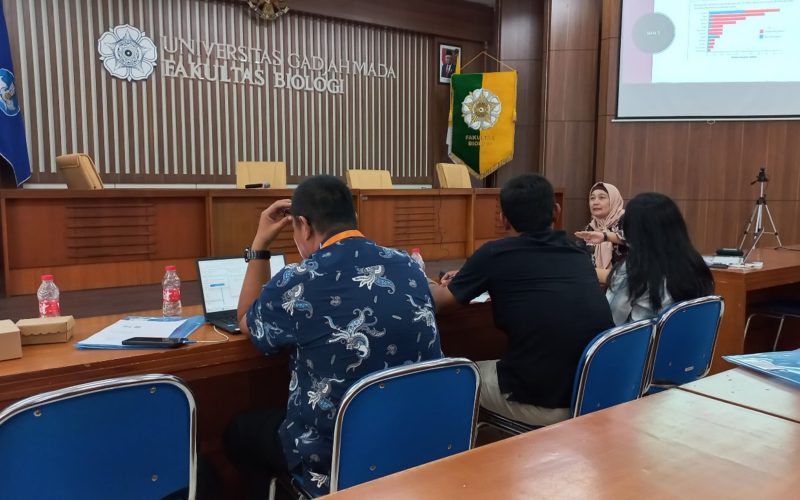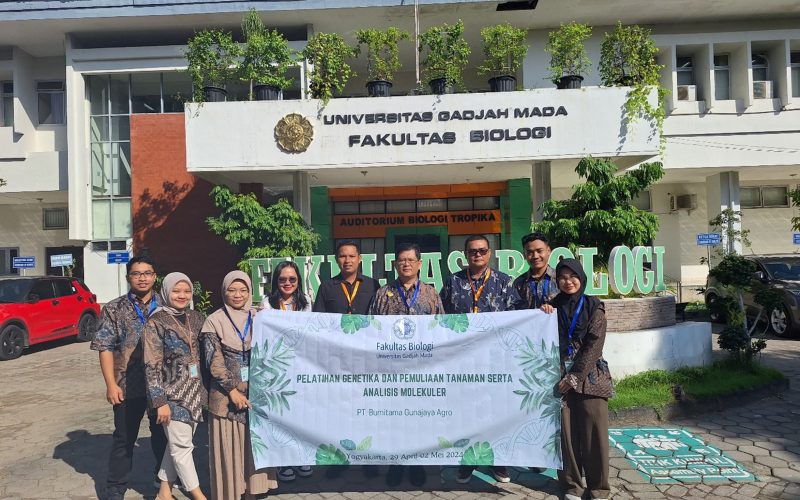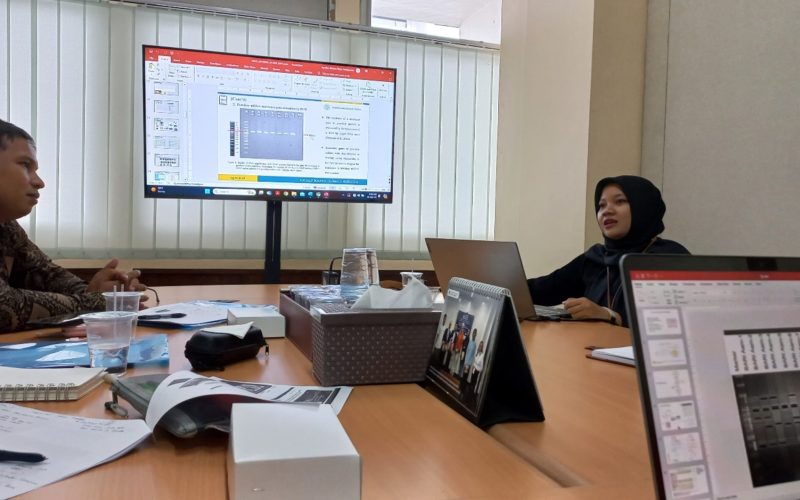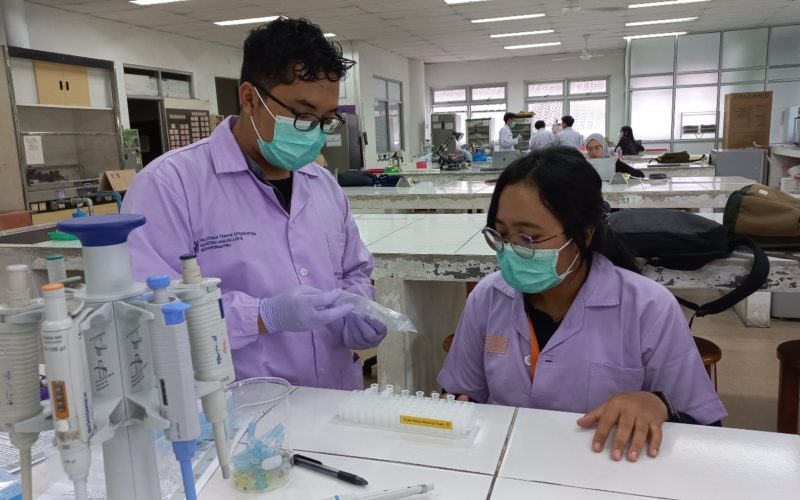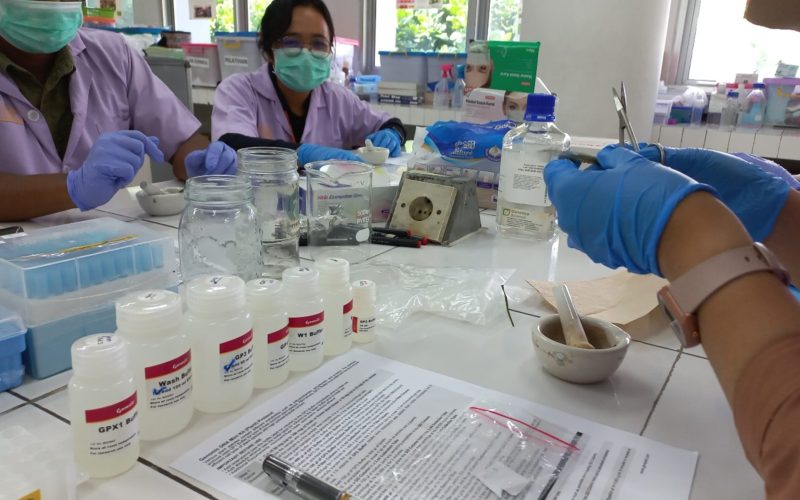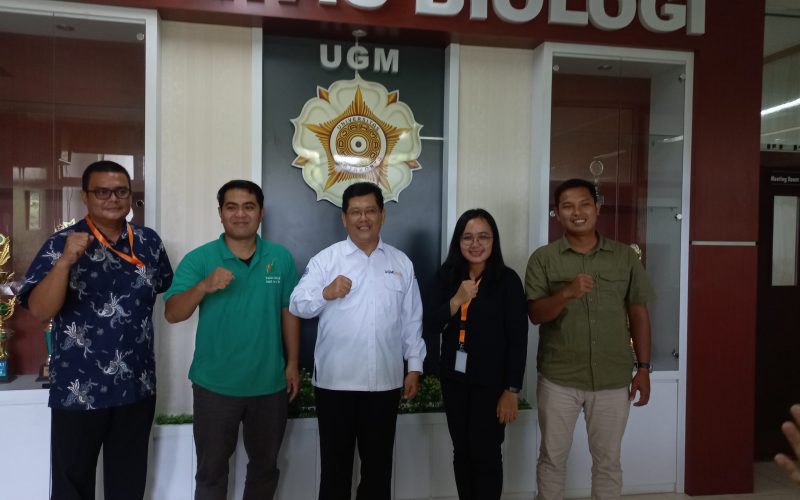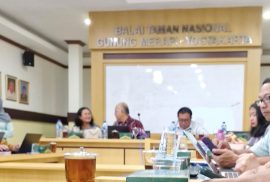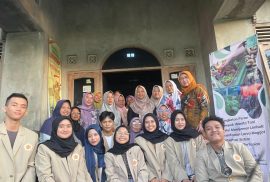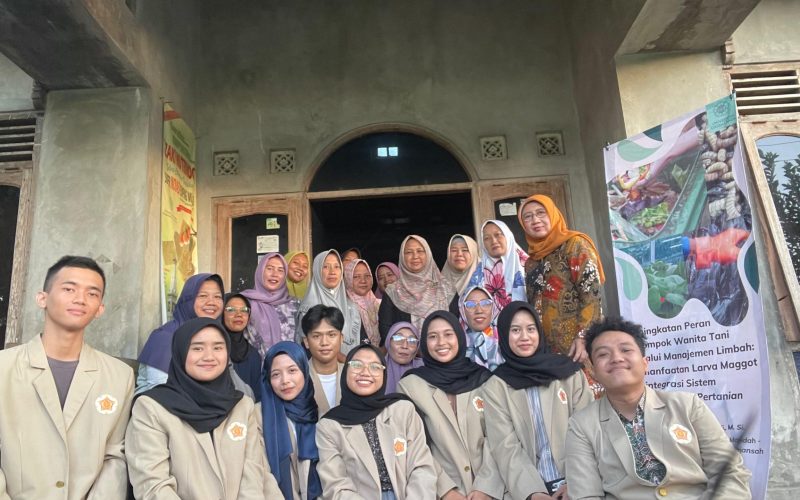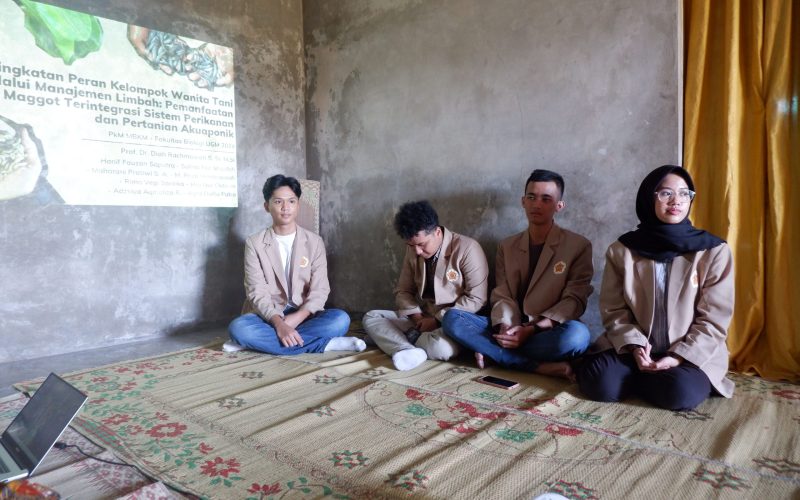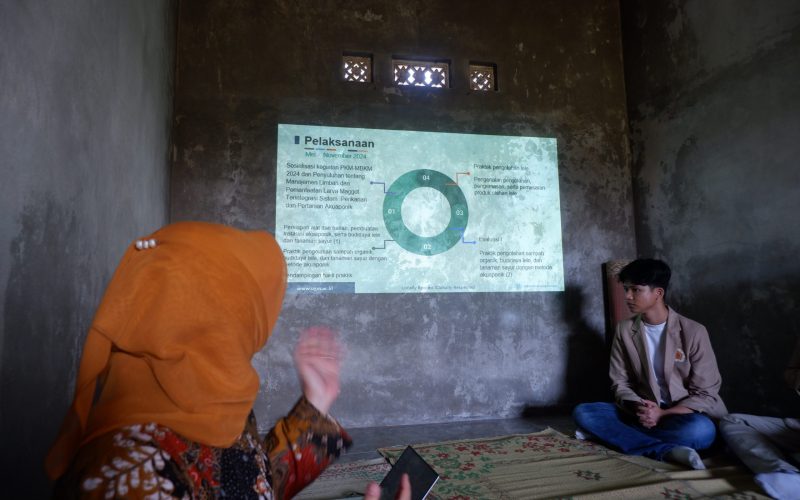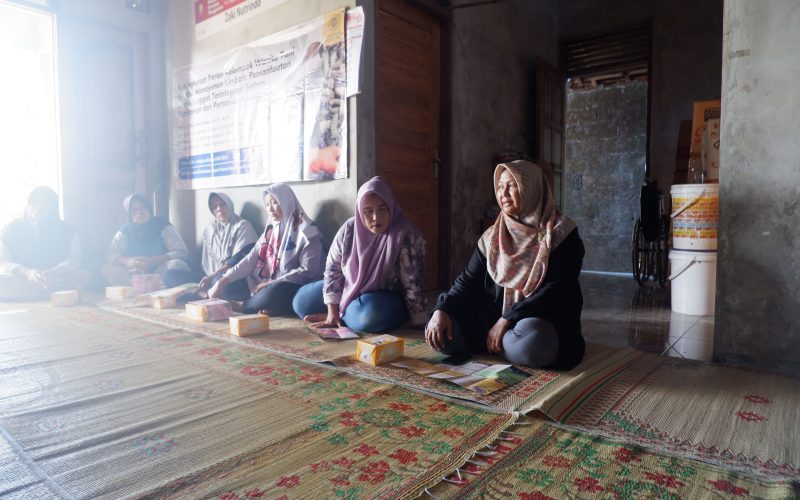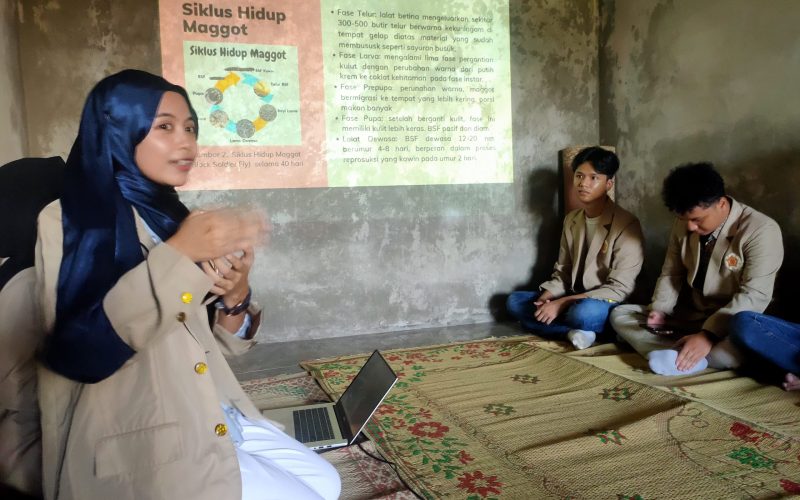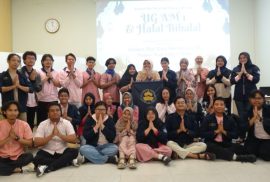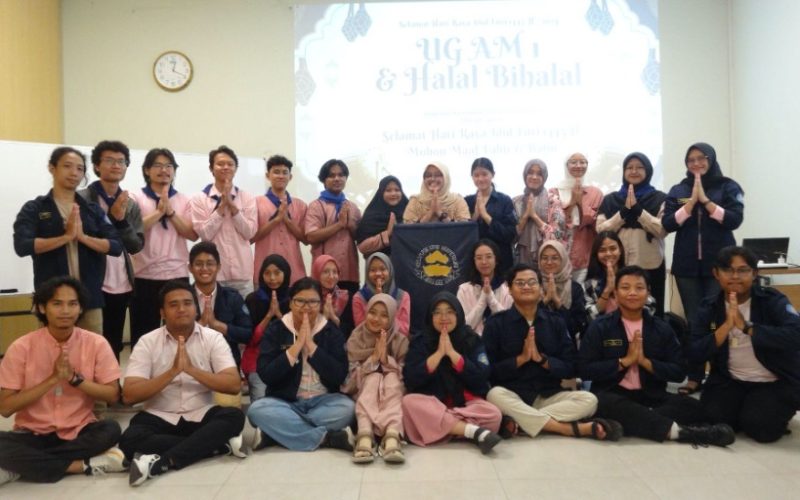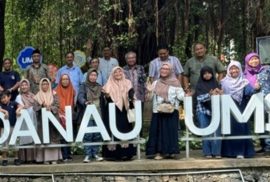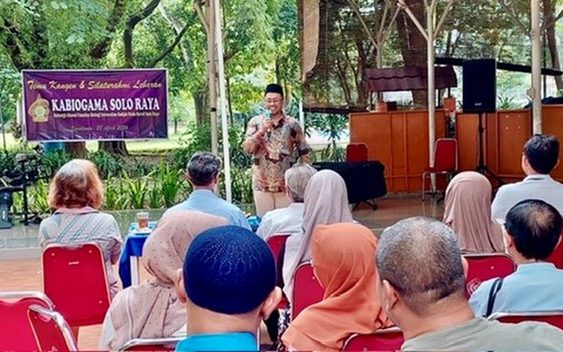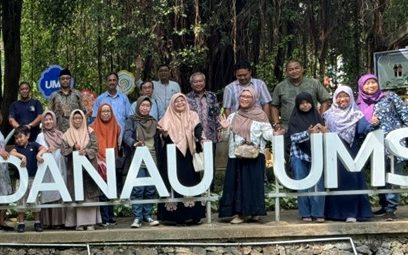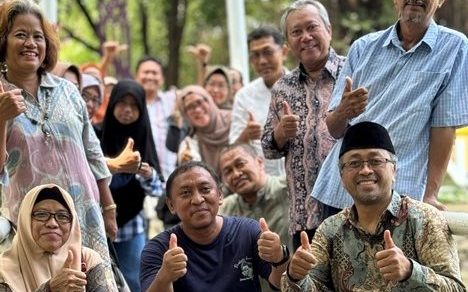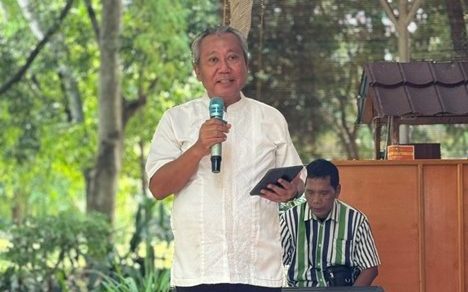Friday, May 3, 2024, In order to follow up on the partnership collaboration with Wedomartani Village, the Faculty of Biology UGM Lecturer Team conducted Community Service activities (PkM) in Partner Villages with the theme: “Community Service based on Regional Potential and Human Resources in Wedomartani, Ngemplak, Sleman”. The Faculty of Biology UGM Lecturer Team, led by Prof. Rarastoeti Pratiwi, consisted of Prof. Endang Semiarti, Dr. Yekti Asih Purwestri, Zuliyati Rohmah, Ph.D.Eng., and Dr. Ardaning Nuriliani, assisted by Moses Atmajadwiputra Polela, S.Si, began with a visit to Wedomartani Village. The Lecturer Team was received directly by the Head of Wedomartani Village, H. Teguh Budianto, accompanied by the Village Secretary, Rohmad Gunawan Hardono, S.Pd., Head of Jetis Hamlet, Wagiman, S.H., M.IP., and Head of Malangrejo Hamlet, Sarbini.
The meeting started with introductions and presentations of the Community Service activity plan for the Partner Village that will be carried out from May to October 2024. The potential of the Wedomartani Village area is significant, including agricultural land, livestock, the presence of wildlife, remnants of temple sites, reservoirs, and the community culture that is sustainable. Human Resources (HR) in the Wedomartani, as a suburban area, has a population with fairly good levels of education and skills, but still needs to be improved and synergized for the management of natural resources in the area. This activity supports the 2030 agenda for Sustainable Development Goals (SDGs), particularly goal 17, which is Partnership to Achieve Goals.
There are seven activities planned for this event, namely Utilization of Used Cooking Oil for Aromatherapy based on Lemongrass Extract, which will be carried out by Prof. Laurentius Hartanto Nugroho, Dr. Tri Rini Nuringtyas, and Dr. Yekti Asih Purwestri, in partnership with the Lestari Women Farmer Group of Malangrejo. The Activity of Indigenous Chicken Farming for Community Nutrition Improvement, which will be carried out by Dr. Ardaning Nuriliani and Dr. med.vet. Hendry T.S.S.G. Saragih in partnership with the Pajangan hamlet community. The Utilization of Appropriate Technology for Animal Manure Processing into Organic Fertilizer, which will be carried out by Prof. Rarastoeti Pratiwi and Tyas Ikhsan Hikmawan, Ph.D., in partnership with the Wedomartani Tourism Awareness Group. The Cultivation of Vanda tricolor Orchids, Mount Merapi Native Orchids as the Icon of Sleman Orchids to Support EduTourism, which will be carried out by Prof. Endang Semiarti in partnership with the PKK of Jetis and Malangrejo hamlets. Activities for Prevention and Treatment of Wounds Caused by Venomous Animals, Conservation Efforts for the Environment and Wildlife, and Training in Media and Content Creation for Youth Empowerment, which will be carried out by Zuliyati Rohmah, Ph.D.Eng. and Susilohadi, Ph.D., in partnership with the Wildlife and Environmental Enthusiast Groups, as well as the Youth Organization in Wedomartani.
After the presentation regarding the plans for each Community Service activity by the Faculty of Biology Lecturers, the event continued with remarks from the Head of Wedomartani Village, H. Teguh, who expressed his hopes regarding the Partnership Agreement between the Faculty of Biology UGM and Wedomartani Village, within a period of 5 years, from 2022 to 2027. H. Teguh expressed: “As representatives of the community in Wedomartani Village, we express our gratitude to the Faculty of Biology UGM, and hope that all activities planned meticulously by the lecturers, and communicated with several sub-villages, can proceed smoothly. The community can benefit from these activities, so that this partnership collaboration can yield results and continue in the future, especially in enhancing the economy and welfare of the Wedomartani community.” The meeting at Wedomartani Village proceeded smoothly with camaraderie, and concluded with a group photo.
Indonesia is one of the largest mega-biodiversity countries in the world, with a variety of rich species of flora, fauna and microbiotics that live in terrestrial, freshwater, wetland, coastal and marine ecosystems. However, its current condition continues to experience pressure from damage and the threat of extinction. On the other hand, the status, trends and impact of anthropocentric activities cannot be measured nationally.
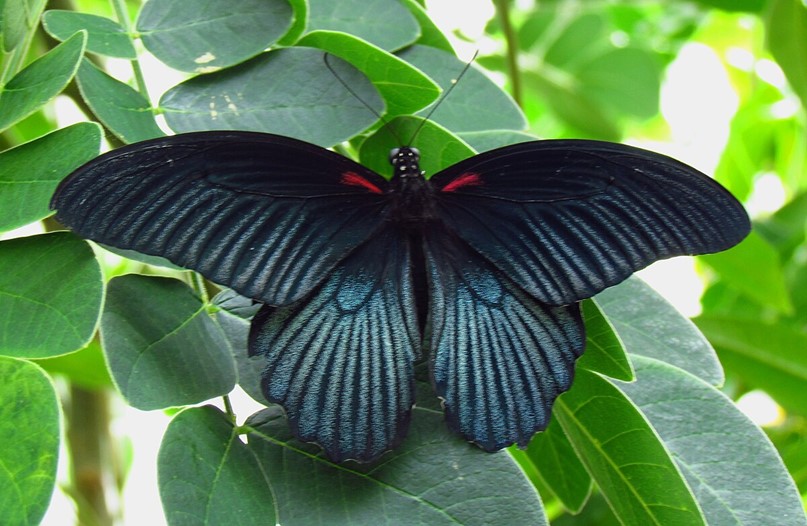
To overcome this problem, the Indonesian Biology Consortium (KOBI), since 2019, has initiated the preparation of the Indonesian Biodiversity Index (IBI) through the MBKM-Biological Data Curator activity which was attended by 514 students from 104 universities in order to collect and compile biodiversity data in Indonesia. “We have succeeded in collecting data on 11,137 biodiversity,” said Chairman of the Indonesian Biology Consortium (KOBI) Prof. Dr. Budi Setiadi Daryono told journalists Monday (29/4) in the context of socializing the results of the Consultation Seminar on the Results of the Analysis of the Indonesian Biodiversity Index, which took place in Jakarta, last Friday (26/4).
According to Budi, the analysis of the biodiversity index is through the development of the use of biodiversity big data technology to answer the current knowledge gap regarding biodiversity data. “The use of big data is specifically to measure the status, trends and impact of development activities on biodiversity in its habitat,” said the Dean of the Faculty of Biology UGM.
According to Budi, the collection of data on 11,137 biodiversity will then be analyzed in more depth by experts and curators who are competent in their fields. With the support of strong concept and model design, as well as the right composition of expertise and knowledge in the study team, we will be able to optimize new knowledge products from the use of big data. Budi said several Biology UGM lecturers involved in KOBI contributed to data collection. Apart from that, there is a Professor in the Statistics Study Program, FMIPA UGM, Prof. Dedi Rosadi is a member of the expert team for Biodiversity Index analysis.
Budi hopes that the results of the Indonesian Biodiversity Index (IBI) assessment can become a data reference and visual guide for practitioners in the field of biodiversity as well as a proposal for planning for the government in determining policies and making decisions by looking at the status and trends of biodiversity sustainability for ecosystems and nature in Indonesia. “We want the existence of IBI to provide index calculation results that are scientifically tested and can be jointly accounted for for credible environmental and biodiversity management in Indonesia,” he hoped.
WWF Indonesia Manager and member of the Indonesian Biodiversity Index research team, Barano Siswa Sulistyawan, Ph.D., stated that the curation of biodiversity data was based on data collection from 1975 to 2023. The data obtained was then carried out by a population census, population estimation, density including data converted from camera traps, abundance index, transport per business unit, biomass, samples, and representativeness.
“All data entered is stored and updated through the Indonesia Biodiversity Database server system, then geographical corrections are made to the location of the observation results according to the published report,” he said.
However, what is no less important, according to him, is correction of all input data to validate writing according to data categorization. This Faculty of Biology UGM alumnus explained that currently he is conducting a biodiversity index in categories per class, such as the analysis carried out for the actinopterygii, aves, mammals, reptiles and invertebrates.
However, what is no less important, according to him, is correction of all input data to validate writing according to data categorization. This Faculty of Biology UGM alumnus explained that currently he is conducting a biodiversity index in categories per class, such as the analysis carried out for the actinopterygii, aves, mammals, reptiles and invertebrates.
Author: Gusti Grehenson on ugm.id
Photo: inaturalist.org, Gordon Robertson
Translated by Faculty of Biology UGM
Yogyakarta, 2 May 2024 – Genetics and Breeding Laboratory, Faculty of Biology UGM has carried out Training in Genetics and Plant Breeding and Molecular Analysis PT. Bumitama Gunajaya Agro. This activity consisted of a lecture on Plant Breeding and Molecular Data Analysis with speakers from the Faculty of Biology UGM, Prof. Dr. Budi Setiadi Daryono, M. Agr. Sc., Dra. Tuty Arisuryanti, M.Sc., Ph.D., Adib Fakhruddin Yusuf, S.Si., M.Sc., and Dian Sartika, S.Si., M.Sc., placed at Auditorium and Genetics Laboratory and Breeding the Faculty of Biology UGM, as well as field visits to the Sawitsari Research Station, Faculty of Biology UGM and the Mutihan Hamlet field garden, Prambanan, Sleman. This activity will last for three days, from 29 April 2024 – 2 May 2024.
In the opening remarks of the training, Prof. Dr. Budi Setiadi Daryono, M. Agr. Sc., as the Dean of the Faculty of Biology UGM, conveyed a message that the participants should be serious about taking part in the training and hopefully they will be able to increase their knowledge and insight to continue working at the Company. Apart from that, the Dean also advised the participants to take advantage of the training to look for opportunities to continue their studies at professional, master’s and doctoral levels in the Biodiversity Curator Professional Study Program (PKKH), Masters in Biology and Doctorate in Biology at the UGM Faculty of Biology.
The field visit practice was attended by participants from PT. Bumitama Gunajaya Agro. On the first day, introductions and photos were held with the resource person, followed by a lecture on Introduction to Plant Breeding by Prof. Dr. Budi Setiadi Daryono, M. Agr. Sc. The presentation was then continued by Dra. Tuty Arisuryanti, M.Sc., Ph.D. with the topic Molecular Data Analysis. On the second day the lecture was continued by Adib Fakhruddin Yusuf, S.Si., M.Sc., and Dian Sartika, S.Si., M.Sc. with the topic Research Methods and Analysis of Genetic Diversity. On the second day, a field visit was also carried out at the Gama Melon Green House which is located in Mutihan, Madurejo, Prambanan, Sleman, D.I. Yogyakarta to practice pollination.
On the last day the training was held again at the Faculty of Biology UGM with a lecture from Prof. Dr. Budi Setiadi Daryono, M. Agr. Sc. with material on Selection Methods in Cross-Pollinated Plants and Analysis of Combining Strength & Utilization of Molecular Markers for Plant Selection. At the end of the training, participants were also introduced to the Procedures, Procedures for Submitting Registration of Plant Breeding Results and Plant Variety Protection (PVT) as well as Plant Seed Distribution Permits.
The training held by the UGM Faculty of Biology is also expected to contribute to achieving the Sustainable Development Goals (SDGs). By holding this training, we are targeting four crucial points from the 17 SDGs points: the fourth point (quality education), the eighth point (decent work and economic growth: decent work and economic growth), the ninth point (industry, innovations, and infrastructure : industry, innovation and infrastructure), and the seventeenth point (partnerships for the goals : partnerships to achieve goals). Apart from that, this activity is also an IKU 6 achievement for the Faculty of Biology UGM because this training is also an exploration of collaboration between the Faculty of Biology UGM and private companies.
All participants from PT. Bumitama Gunajaya Agro was given a certificate as a sign of the completion of the Genetics and Plant Breeding and Molecular Analysis Training. This training is expected to provide insight into plant breeding and molecular analysis for the participants.
Friday, May 3, 2024, In order to follow up on the partnership collaboration with Wedomartani Village, the Faculty of Biology UGM Lecturer Team conducted Community Service activities (PkM) in Partner Villages with the theme: “Community Service based on Regional Potential and Human Resources in Wedomartani, Ngemplak, Sleman”. The Faculty of Biology UGM Lecturer Team, led by Prof. Rarastoeti Pratiwi, consisted of Prof. Endang Semiarti, Dr. Yekti Asih Purwestri, Zuliyati Rohmah, Ph.D.Eng., and Dr. Ardaning Nuriliani, assisted by Moses Atmajadwiputra Polela, S.Si, began with a visit to Wedomartani Village. The Lecturer Team was received directly by the Head of Wedomartani Village, H. Teguh Budianto, accompanied by the Village Secretary, Rohmad Gunawan Hardono, S.Pd., Head of Jetis Hamlet, Wagiman, S.H., M.IP., and Head of Malangrejo Hamlet, Sarbini.
The meeting started with introductions and presentations of the Community Service activity plan for the Partner Village that will be carried out from May to October 2024. The potential of the Wedomartani Village area is significant, including agricultural land, livestock, the presence of wildlife, remnants of temple sites, reservoirs, and the community culture that is sustainable. Human Resources (HR) in the Wedomartani, as a suburban area, has a population with fairly good levels of education and skills, but still needs to be improved and synergized for the management of natural resources in the area. This activity supports the 2030 agenda for Sustainable Development Goals (SDGs), particularly goal 17, which is Partnership to Achieve Goals.
There are seven activities planned for this event, namely Utilization of Used Cooking Oil for Aromatherapy based on Lemongrass Extract, which will be carried out by Prof. Laurentius Hartanto Nugroho, Dr. Tri Rini Nuringtyas, and Dr. Yekti Asih Purwestri, in partnership with the Lestari Women Farmer Group of Malangrejo. The Activity of Indigenous Chicken Farming for Community Nutrition Improvement, which will be carried out by Dr. Ardaning Nuriliani and Dr. med.vet. Hendry T.S.S.G. Saragih in partnership with the Pajangan hamlet community. The Utilization of Appropriate Technology for Animal Manure Processing into Organic Fertilizer, which will be carried out by Prof. Rarastoeti Pratiwi and Tyas Ikhsan Hikmawan, Ph.D., in partnership with the Wedomartani Tourism Awareness Group. The Cultivation of Vanda tricolor Orchids, Mount Merapi Native Orchids as the Icon of Sleman Orchids to Support EduTourism, which will be carried out by Prof. Endang Semiarti in partnership with the PKK of Jetis and Malangrejo hamlets. Activities for Prevention and Treatment of Wounds Caused by Venomous Animals, Conservation Efforts for the Environment and Wildlife, and Training in Media and Content Creation for Youth Empowerment, which will be carried out by Zuliyati Rohmah, Ph.D.Eng. and Susilohadi, Ph.D., in partnership with the Wildlife and Environmental Enthusiast Groups, as well as the Youth Organization in Wedomartani.
After the presentation regarding the plans for each Community Service activity by the Faculty of Biology Lecturers, the event continued with remarks from the Head of Wedomartani Village, H. Teguh, who expressed his hopes regarding the Partnership Agreement between the Faculty of Biology UGM and Wedomartani Village, within a period of 5 years, from 2022 to 2027. H. Teguh expressed: “As representatives of the community in Wedomartani Village, we express our gratitude to the Faculty of Biology UGM, and hope that all activities planned meticulously by the lecturers, and communicated with several sub-villages, can proceed smoothly. The community can benefit from these activities, so that this partnership collaboration can yield results and continue in the future, especially in enhancing the economy and welfare of the Wedomartani community.” The meeting at Wedomartani Village proceeded smoothly with camaraderie, and concluded with a group photo.
In order to ensure the implementation of good cooperation in accordance with applicable regulations, two lecturers at the Faculty of Biology UGM, namely Prof. Dr. Ratna Susandarini, M.Sc. and Donan Satria Yudha, S.Si., M.Sc. attend coordination meetings for the Management of Cooperation in Conservation Areas. The meeting was held at the office of the Mount Merapi National Park Office (TNG Merapi) on Friday 3 May 2024. A presentation regarding the regulations and procedures for cooperation between academics and the Conservation Area Technical Management Implementation Unit (UPT) was delivered by Drs. Toto Indraswanto, M.Sc. from the Directorate of Conservation Area Planning, Directorate General of KSDAE, Ministry of Environment and Forestry.
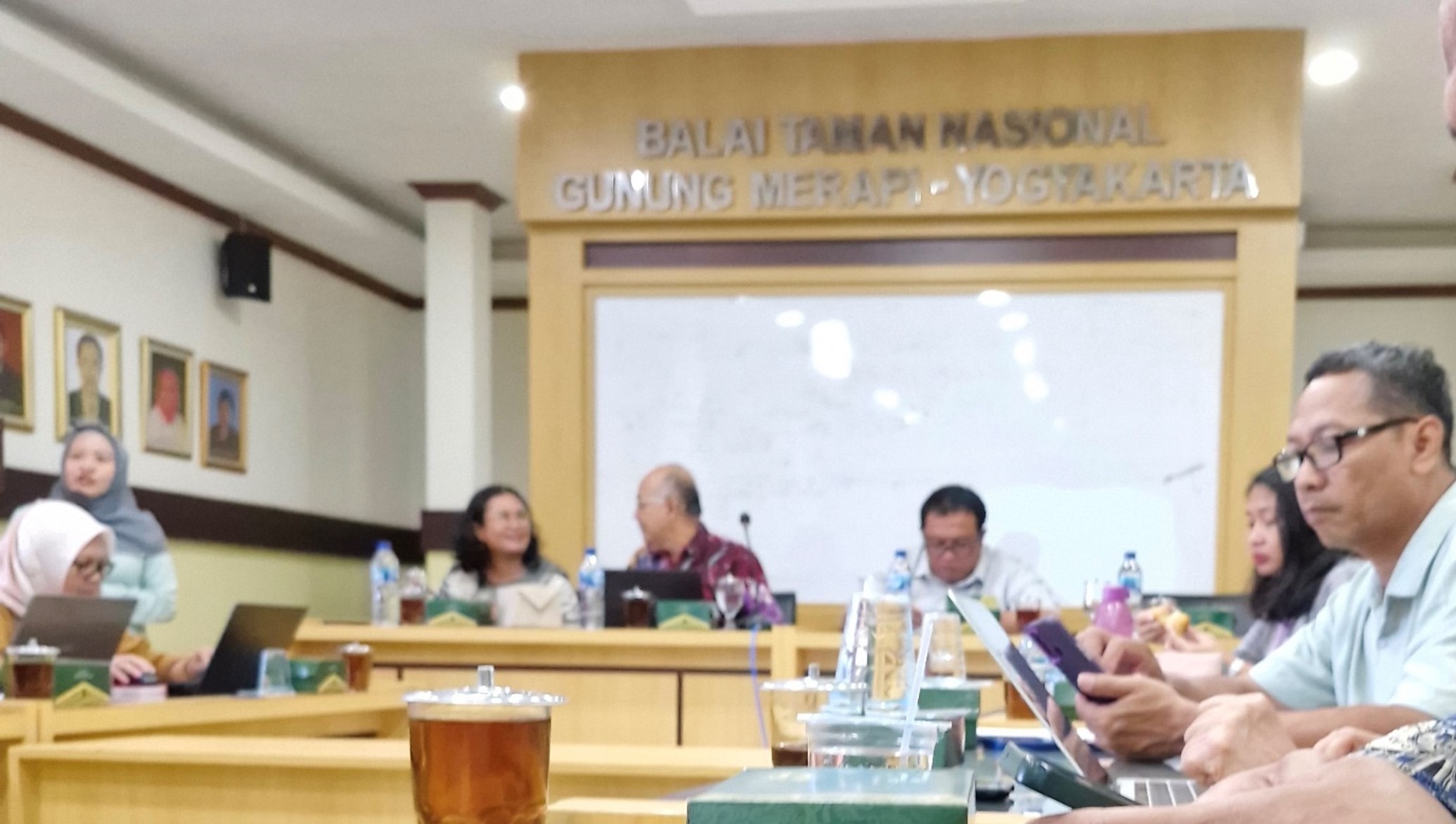
In the collaboration plan with TNG Merapi, the scope of work that will be carried out is in the aspect of Strengthening the Function of Conservation Areas. More specifically, the collaboration program includes Institutional Strengthening, Flora and Fauna Preservation, Ecosystem Restoration, and Community Empowerment. In terms of procedures for starting collaboration for faculties or universities with more than one UPT, in this case TNG Merapi and TNG Merbabu, the document that needs to be made is a Memorandum of Understanding (MoU) between the Dean or Chancellor and the Director General of KSDAE, then followed by a Work Agreement The same will be explained in more detail in the Program Implementation Plan and Annual Activity Plan. The coordination meeting was attended by representatives from various universities including UGM, UAJY, and INTAN. Representatives from UGM consisted of the Faculty of Biology, Faculty of Forestry and Faculty of Mathematics and Natural Sciences. Apart from governance, discussions with Merapi TNG officials also discussed priority species that need to be studied for their potential, status in nature and conservation.
It is hoped that this coordination meeting will be a good step in improving the implementation of collaboration between the Faculty of Biology UGM and the Mount Merapi National Park Office. This is in line with the Faculty of Biology’s commitment to supporting sustainable development goals (SDGs) in the context of preserving terrestrial ecosystems (SDG 15) through sustainable cooperation (SDG 17).
In order to introduce and strengthen community service cooperation with partner villages, the PkM-MBKM Team chaired by Prof. Dr. Diah Rachmawati, S.Si, M.Si. together with Hanif Fauzan Saputra, Salma Nur Majidah, Maharani Pratiwi S.A., M. Reza Hendriansah, Rima Vegi Santika, Eka Nur Oktavia, Adzkiya Aqmaliza R., and Agra Daffa Putra conducted socialization activities for the Merdeka Belajar Kampus Merdeka Program in Kepuh Wetan, Wirokerten Village, Banguntapan Sub-District, Bantul Regency, DIY on Saturday, 4th of May 2024, from 15:30 to 17:00. This activity was attended by the women of the Kelompok Wanita Tani (KWT) Amanda.
The activity was guided by Agra Daffa as the MC, who started with opening remarks and student introductions. The event continued with speeches from Prof. Dr. Diah Rachmawati, S.Si. M.Si., followed by a speech from Mrs. Marwati, the chairwoman of the KWT Amanda. The PkM MBKM Team delivered socialization material related to the introduction of Circular Waste Management, including: (1) the potential of maggots for organic waste management, (2) introduction to aquaponics systems, and (3) catfish and vegetable cultivation using aquaponic methods.
The delivery of this material sparked enthusiasm among the women to learn more about waste management utilizing integrated maggot aquaponics systems. Although not very familiar with maggots, they were very interested in learning and implementing this system in their daily lives, especially as maggots can help minimize household waste issues. During the discussion session, Mrs. Marwati, the chairwoman of KWT Amanda, asked about the concept of maggot cultivation, including preparation of maggot growth media, utilization of organic waste in maggot production, and application and utilization of maggots for fish feed. Additionally, some group members of KWT Amanda inquired about the aquaponics system concept, including cultivation preparation, considerations, and factors affecting aquaponic productivity. Mrs. Marwati also expressed her hope for guidance and direction from Prof. Dr. Diah Rachmawati, S.Si. M.Si. and students in realizing the sustainability implementation of the program to support the empowerment of entrepreneurial independence of KWT Amanda and contribute to the improvement of community economy (SDG 8) and promotes well-being (SDG 3).
With the implementation of this activity, we hope for the sustainability of PkM MBKM activities in Kepuh Wetan, Wirokerten Village. After this socialization activity, it is hoped that the next activities can directly implement the concept of circular waste processing by the KWT Amanda. This activity also aims to build camaraderie between the residents of Kepuh Wetan, Wirokerten Village, and the PkM MBKM Team from the Faculty of Biology, UGM.
Yogyakarta, 2 May 2024 – The Laboratory of Genetic and breeding Faculty of Biology conducted training on Genetics and Breeding as well as Molecular Analysis for researchers from PT Bumitama Gunajaya Agro. Held from April 29 to May 2, 2024, at the Genetics and Breeding Laboratory, Faculty of Biology, UGM, the training comprised sessions on Plant Breeding and Molecular Data Analysis. Speakers included Prof. Dr. Budi Setiadi Daryono, M. Agr. Sc., Dra. Tuty Arisuryanti, M.Sc., Ph.D., Adib Fakhruddin Yusuf, S.Si., M.Sc., and Dian Sartika, S.Si., M.Sc., all from the Faculty of Biology, UGM. The training took place at the Auditorium and Laboratory of the Faculty of Biology, UGM, with field visits to the Sawitsari Research Station and the field garden at Dusun Mutihan, Prambanan, Sleman.
In his opening remarks, Prof. Dr. Budi Setiadi Daryono, M. Agr. Sc., the Dean of the Faculty of Biology, UGM, encouraged participants to actively engage in the training and hoped that the knowledge gained would benefit their work at the company. He also urged them to consider further study opportunities, such as professional programs at the Biodiversity Curator Professional Program (PKKH), Master’s programs in Biology, and Doctoral programs in The Faculty of Biology UGM.
On the first day, Prof. Dr. Budi Setiadi Daryono, M. Agr. Sc., delivered the first session on Plant Breeding Introduction, followed by Dra. Tuty Arisuryanti, M.Sc., Ph.D., presenting on molecular data analysis. The second day featured sessions by Adib Fakhruddin Yusuf, S.Si., M.Sc., and Dian Sartika, S.Si., M.Sc., on Research Methods and Genetic Diversity Analysis. Additionally, participants visited the Gama Melon Greenhouse in Mutihan, Madurejo, Prambanan, Sleman, Yogyakarta, for practical pollination exercises.
On the final day, training resumed at the Faculty of Biology, UGM, with sessions on Cross-Pollination Plant Selection Methods and the Utilization of Molecular Markers for Plant Selection, led by Prof. Dr. Budi Setiadi Daryono, M. Agr. Sc. The training concluded with an overview of the procedures for Plant Breeding Results Registration and Plant Variety Protection (PVP), as well as Plant Seed Circulation Permits.
All participants from PT Bumitama Gunajaya Agro received certificates marking the completion of the Genetics and Plant Breeding Training, along with Molecular Analysis. The training aimed to provide insights into plant breeding and molecular analysis for the participants. [Committee]
On Saturday, April 27, 2024, the Organizational Department of Herpetology Study Group (KSH) held the event “Upgrading Anggota Muda 1 and Halal Bihalal 2024”. The event took place in Room 1 of Building B, Faculty of Biology, UGM, from 08:00 to 12:00 WIB. The event was attended by 28 participants including members from KSH cohorts 31, 32, 33, and 34.
The Upgrading Anggota Muda 1 aimed to broaden the sense of young members into organizational matters and to enhance their soft skills to become more professional in organization. The event was opened by the MCs Nurulita Namira B. and Jauharah Rafagusta S. The event began with opening remarks, prayers, singing the KSH Anthem, reading the KSH Code of Ethics, and a speech by the KSH Chairman. Next, there was a presentation of material by the speaker, a KSH alumnus Rashif Naufal Andika, S.Si., followed by a Q&A session. The event then continued with a presentation of case studies, which were later discussed by the participants. Participants then presented and discussed the case study in their respective groups. The Upgrading Anggota Muda 1 concluded with a “guess the song” game and a break while exchanging snacks.
The event then continued with the Halal Bihalal pledge by representatives from each cohort. The representatives were Arkaniti Dibyawedha A. for AM 31, Anthera Al-Firdaus P. for AM 32, Salsabila Putri N. for AM 33, and Ardina Azmalia for AM 34. The event concluded with a prayer, exchanging greetings, and group documentation. The event was deemed successful and it is hoped that it will strengthen the relationship among KSH members in the future. [Author: KSH]
On Saturday, April 27, 2024, the Organizational Department of Herpetology Study Group (KSH) held the event “Upgrading Anggota Muda 1 and Halal Bihalal 2024”. The event took place in Room 1 of Building B, Faculty of Biology, UGM, from 08:00 to 12:00 WIB. The event was attended by 28 participants including members from KSH cohorts 31, 32, 33, and 34.
The Upgrading Anggota Muda 1 aimed to broaden the sense of young members into organizational matters and to enhance their soft skills to become more professional in organization. The event was opened by the MCs Nurulita Namira B. and Jauharah Rafagusta S. The event began with opening remarks, prayers, singing the KSH Anthem, reading the KSH Code of Ethics, and a speech by the KSH Chairman. Next, there was a presentation of material by the speaker, a KSH alumnus Rashif Naufal Andika, S.Si., followed by a Q&A session. The event then continued with a presentation of case studies, which were later discussed by the participants. Participants then presented and discussed the case study in their respective groups. The Upgrading Anggota Muda 1 concluded with a “guess the song” game and a break while exchanging snacks.
The event then continued with the Halal Bihalal pledge by representatives from each cohort. The representatives were Arkaniti Dibyawedha A. for AM 31, Anthera Al-Firdaus P. for AM 32, Salsabila Putri N. for AM 33, and Ardina Azmalia for AM 34. The event concluded with a prayer, exchanging greetings, and group documentation. The event was deemed successful and it is hoped that it will strengthen the relationship among KSH members in the future. [Author: KSH]
Yogyakarta, May 1, 2024 – On Sunday, April 28, 2024, members of the alumni of the Faculty of Biology, Gadjah Mada University (Kabiogama) Solo Raya branch, gathered for a Reunion and Eid Al-Fitr Gathering event. The event, held in Solo, brought together alumni from various batches, ranging from 1980 to 2020.
The festive event was attended by prominent figures, including the Chairperson of Kabiogama Solo Raya, Dra. Agnes Heratri, M.P., the Secretary of Kabiogama Solo Raya, Triastuti Rahayu, S.Si., M.Si., as well as other officials of Kabiogama Solo Raya.
A significant highlight of the event was the address by the Rector of Muhammadiyah University of Surakarta (UMS), Prof. Dr. Sofyan Anif, M.Si. He shared thoughts on local practices, often referred to as ‘local wisdom’, particularly related to the tradition of Eid Al-Fitr. His messages provided inspiration and guidance for alumni to uphold and enrich local values in their daily lives.
Representing the Faculty of Biology UGM was Dr. Bambang Retnoaji, M.Sc., Vice Dean for Academic and Student Affairs, who emphasized the importance of maintaining strong bonds among alumni and the need for networking events like this. This not only strengthens relationships but also enriches experiences and insights through the exchange of ideas and information.
The highlight of the event was addressed by Prof. Dr. Prabang Setyono S.Si., M.Si., who led the Eid Al-Fitr pledge. This pledge reflects a shared commitment to maintaining bonds of friendship and strengthening ties as the extended family of Kabiogama Solo Raya.
The event concluded warmly with the distribution of souvenirs to participants, followed by lunch and a group photo session. The spirit of togetherness demonstrated that the bonds among alumni of the Faculty of Biology UGM, Solo Raya branch, are truly strong.
The event concluded warmly with the distribution of souvenirs to participants, followed by lunch and a group photo session. The spirit of togetherness demonstrated that the bonds among alumni of the Faculty of Biology UGM, Solo Raya branch, are truly strong.

